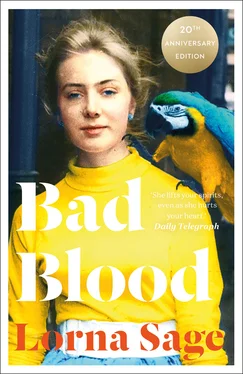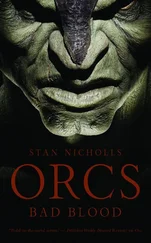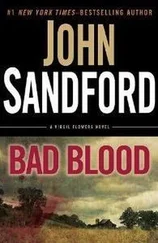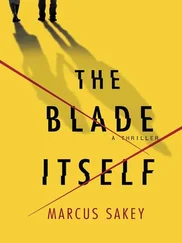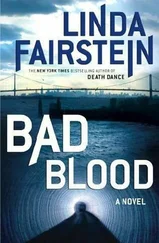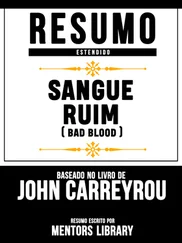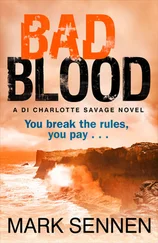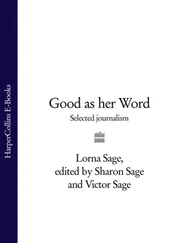Katie doled out credit with a mixture of scandal, resignation and sympathy, clicking her tongue and sighing as she settled back into the kitchen’s fireside warmth to gossip about the after-hours callers (‘There’s cheek for you, sent that Jimmy round again, poor little tyke’). But Stan had his own infinitely more elaborate and clandestine methods, which he’d evolved during the Depression. This was all meant to be a secret – part of his furtive lunacy – but he was proud of his system, and took me on a tour of the stockrooms and the lofts above to show me how it worked. This whole building was separate from the house, a ramshackle barn-like wooden place with missing floorboards and shaky stairs. There were soap boxes, candles, piles of tin trays and jute mats, cigarettes in cartons on top away from the damp, nothing very exciting at first glance. It was only when you edged your way past this sensible stuff that you entered Stan’s Aladdin’s cave.
Piled up high, glinting and dusty, were curly metal antlers and wiry spines and whiskers that on closer inspection resolved themselves into dismembered bicycles – handlebars, wheels, plus the occasional fork or seat. There were smaller sets of wheels, too, that came in fours, from prams, and even some whole prams, parked dangerously on top of one another like an accident. He was proudest, though, of the contents of the sacks he kept, for fear of thieves, on the upper storey where the holes in the floor acted as booby traps. Here he had sacks full of ivories: confiscated piano keys, which for Stan, you could tell, represented (together with his other trophies) a cunningly accumulated fortune, the wealth of the world, pretty nearly, infinite riches in a little room.
His plan had been to confiscate people’s most vital possessions – their mobility and their music – as pledges against bad debts. They were never redeemed. Yet Stan didn’t mind, didn’t mind at all. In fact, he was as excited and pleased as if he’d invented his own currency and was a secret millionaire in it. He cherished the ivories and the bike wheels, and looked on the storerooms as a sort of safety deposit. This was his treasure, his equivalent to the collections of scented sachets and beads his sisters kept in the bedrooms. They for their part tut-tutted over his inexplicable affection for this junk, but even at the time when I was small I think I somehow understood – since I liked the prams and bikes, and was mystified and impressed by what I imagined to be the stolen teeth of all those pianos – that here was yet another annexe to the fantasy edifice of Hereford Stores. They had (save butcher Tom) all but forgotten that keeping a shop was about swapping goods for money; its real function was as a shrine to the past. Mother’s emotional generosity, her gift for giving, had turned all three into obsessive hoarders.
Their bankrupt idyll lasted for nearly ten years after the war. And even when Katie finally married, and died of a stroke horribly soon, confirming all the myths about men, Hereford Stores went on providing the ghost of a living for my mother’s disreputable brother, Uncle Bill, who joined Stan in the shadows until – some time around 1960 – he was done for receiving some hot Daz, and the CLOSED sign went up for the last time and finally meant what it said.
Grandma eked out her visits with other fantasy gratifications. She could hoard wherever she was and, although Shrewsbury and Chester were in her view not a patch on Cardiff, they would help recapture the security of streets, and their cafés and cinemas would cocoon her against the hostile whispers of the trees and the whiffs of manure. These outings were all-female, too, and involved hours of getting ready, then a lift to the train from a blaspheming Grandpa, or sometimes a taxi, all so that she’d be able to repose in the life-giving fug of a matinée at the Gaumont or the Majestic. The plush seats, the dimming of the lights and the sheen they caught on the swagged curtain as it rose, the box of chocolates, were as important as the film itself, almost. Although she loved the whole thing and entered into the spirit of the illusion so enthusiastically that she swept aside the dimension of fiction altogether. The latest Ava Gardner movie was just the most recent report on what promiscuous Ava had been up to since you saw her last: the changes of costume and setting and name were feeble disguises, and didn’t fool Grandma for a minute. She was there to witness when Joan Fontaine, for all her icy blondeness, fell for Harry Belafonte and would (she said) never trust Joan again. Grace Kelly she watched like a hawk for signs of similar leanings and was semi-confirmed when Grace married an Eye-tie. (She herself wouldn’t touch dark chocolate, even, and anyone who acquired a suntan was suspected of a touch of the tar brush.) Once television arrived in our lives she became an addict of soap operas and in particular Emergency Ward 10 , which saved her life day after dreary rural day. The box eventually became her babysitter, the last, many times removed substitute for her mother. By then I was treating her with contempt, as a senile infant, although she scared me a lot, in truth, because she represented the prospect of never growing up.
Once upon a time in South Wales, when a friend of Katie’s came to stay, I had had to spend the night in a feather bed, sandwiched between Katie and Grandma, and that ambiguous sensation of sinking back and back, down and down in a deep nest of feathers and furbelows and flesh, came to stand for the Rhondda. Infinite regress threatened down there: promised, and threatened. It was pleasurable – how could it be otherwise? – to return to the smothering, spongy womb of the Stores. And yet I was always glad to get away. As I grew, Grandma got shorter, so that she sometimes looked almost spherical. She and Katie were such an exclusive club, really, that even my mother wasn’t a full member and I was even further removed from the inner sanctum because I couldn’t recall my great-grandmother, so had to take her praises on trust.
There were other Welsh voices I could have listened to. Occasionally – and to my great surprise – people who dropped in to the shop would congratulate my mother on my bookishness and talk with pride about how their grandchildren were ‘getting on’ and going to the grammar school. People in Tonypandy, as in other mining districts, were enthusiastic about education, in sharp contrast to Hanmer’s conservative scorn and inertia. The future was real and a good thing, and even if you went down the pit like your da you weren’t expected to give up reading, thinking, arguing or politicking; autodidacts flourished still in those days. Nonetheless the atmosphere of Hereford Stores dominated my sense of the place, so that for me the journey south was like slipping into a pocket of the past. I didn’t know who I was, there – didn’t need to know. It was as though I hadn’t been born yet.
Grandma saved paper bags inside paper bags inside paper bags … Years later, when she died, and my mother and I were going through the trunks that by then held the compacted residue of her lifetime’s squirrelling, we came on a cache of letters from my grandfather, tied in the inevitable banal shred of pink ribbon. His courtship compositions, they were, full of quotations from the poets, sentimental flourishes, promising plans. We looked at them with awful embarrassment and agreed (how I wish now that we hadn’t) to burn them, because they seemed shaming evidence of the mutual confidence trick of that hateful marriage. There was cash in the same trunk, folded notes cunningly dispersed among the photos of Katie done up to the nines, and the bars of waxy soap and sugar lumps put by against the return of rationing. And that money was the clue to another part of her story. Where did she get it? Where, for that matter, did she acquire the substantial sum – around five hundred pounds – she’d accumulated in my name (so that my father couldn’t inherit it, she told me once) in National Savings? I didn’t think very hard about it at the time and I took the theories that circulated in the family as tall tales. However, Grandma’s way of blurring the boundary between fantasy and reality, and her power to draw me back into the past have long outlived her.
Читать дальше
